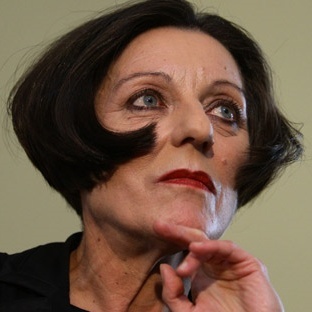
An early masterpiece from the winner of the Nobel Prize hailed as the laureate of life under totalitarianism Romania—the last months of the Ceausescu regime. Adina is a young schoolteacher. Paul is a musician. Clara works in a wire factory. Pavel is Clara’s lover. But one of them works for the secret police and is reporting on all of the group. One day Adina returns home to discover that her fox fur rug has had its tail cut off. On another occasion it’s the hindleg. Then a foreleg. The mutilated fur is a sign that she is being tracked by the secret police—the fox was ever the hunter. Images of photographic precision combine into a kaleidoscope of terror as Adina and her friends struggle to keep mind and body intact in a world pervaded by complicity and permeated with fear, where it’s hard to tell victim from perpetrator. In The Fox Was Always a Hunter, Herta Müller once again uses language that displays the "concentration of poetry and the frankness of prose"—as the Swedish Academy noted upon awarding her the Nobel Prize—to create a hauntingly cinematic portrayal of the corruption of the soul under totalitarianism.
Author

Herta Müller was born in Niţchidorf, Timiş County, Romania, the daughter of Swabian farmers. Her family was part of Romania's German minority and her mother was deported to a labour camp in the Soviet Union after World War II. She read German studies and Romanian literature at Timişoara University. In 1976, Müller began working as a translator for an engineering company, but in 1979 was dismissed for her refusal to cooperate with the Securitate, the Communist regime's secret police. Initially, she made a living by teaching kindergarten and giving private German lessons. Her first book was published in Romania (in German) in 1982, and appeared only in a censored version, as with most publications of the time. In 1987, Müller left for Germany with her husband, novelist Richard Wagner. Over the following years she received many lectureships at universities in Germany and abroad. In 1995 Müller was awarded membership to the German Academy for Writing and Poetry, and other positions followed. In 1997 she withdrew from the PEN centre of Germany in protest of its merge with the former German Democratic Republic branch. The Swedish Academy awarded the 2009 Nobel Prize in Literature to Müller, "who, with the concentration of poetry and the frankness of prose, depicts the landscape of the dispossessed". She currently resides in Berlin, Germany.